With pointy ears and a slightly curly tail, the Canaan dog is a sharp and alert companion that prefers not to socialize too much with strangers. As an ancient guardian breed from Israel, this breed is fiercely loyal and determinedly vocal. The breed is still quite rare. Read on to learn more about the Canaan Dog.
Description of the Canaan Dog
This breed is the national dog of Israel, and one of the AKC’s oldest breeds. It was originally bred as an agile, medium-sized pasture dog, and has stayed true to that for many generations. The Canaan dog retains many of its original traits as an alert and barky companion, and is considered a rare breed by many.
They are lean dogs, with a bushy tail that stands high when the dog feels confident and comfortable. The Canaan dog does best with an active owner (running, agility, or herding are great activities for this breed) who is able to keep up with its quick wit. These dogs excel as multi-use farm dogs that are happy to herd, guard, and drive stock.
When the Romans invaded Israel in the year 70 B.C.E., the ancestors of this breed were separated from their owners and flock. As such, the breed developed without much human influence for hundreds of years. They were rediscovered and redomesticated in the 20th century. At that point, they were trained and used by the Israeli government as sentry dogs. They were perfectly suited to the task thanks to their self-reliance and cleverness.
Life Expectancy and Size
Canaan dogs are medium-sized dogs with a lightly muscular build. While their fur isn’t long, they shed heavily. As a breed that lived independent of humans for roughly 1,800 years, it’s not surprising that this breed is quite hardy. They regularly live well into their teenage years. They are generally healthy, but good breeders will still pursue regular health testing for their dogs.
Canaan dogs stand 19-24 inches tall at the shoulder, and weigh 35-55 pounds.
Protective Ability
Canaan dogs are naturally suspicious of strangers, making them natural guard dogs. That said, their suspicions can easily become too deeply-rooted, making then nervous or aggressive towards friend as well as foe. Canaan dogs need careful training to ensure that they are confident and measured in their protective actions. They are natural barkers, alerting their owners to intruders of all sorts. This makes them ill-suited to apartment living.
The breed can be downright suspicious of strangers but generally thoroughly enjoys bonding with their family.
Training
Despite their long separation from mankind, these dogs are exceptionally trainable. Like most herding dogs, the Canaan dog excels at agility and obedience, and generally enjoys trick training. They can be hardheaded if pressured, so they perform better with treat- or toy-based training methods. Motivating them to do something with rewards generally results in good training sessions. They do not hesitate to dig in their heels when faced with pushy or domineering training methods.
Canaan dogs benefit from careful socialization to ensure that they don’t become overly suspicious of (or aggressive towards) strangers, kids, other dogs, and new situations. Like many other herding breeds, this dog can become quite nippy if undersocialized and unguided. They need regular mental stimulation in the form of puzzle toys or training to stay happy and healthy.
Energy Level
Most Canaan dogs are medium energy, not requiring the endless exercise of some other herding dogs. We’re looking at you, border collies! This makes the breed an excellent introduction to the clever herding group, without committing to 10 or more years of extremely high activity. They do well with regular mental and physical energy outlets, such as obedience, tracking, herding, agility, puzzle toys, and hiking.
Care of the Canaan Dog
Despite being relatively self-sufficient, the Canaan dog requires plenty of mental and physical energy outlets and regular brushing to manage shedding.
Environmental Needs
Originally a desert dog, the Canaan dog does well in hot and dry climates. They are also quite resilient to cold, thanks to their thick short coat.
Exercise Needs
The Canaan dog, like many herding breeds, needs adequate exercise for both brain and body. They enjoy trying new things with their owners, but may require careful introduction to strangers, thanks to their natural guarding tendencies.
Shedding and Grooming
This breed sheds a lot – more than you’d expect given their sleek look. While they may not get mats or knots like some other breeds, the owner of a Canaan dog should be prepared for brushing to manage shedding. This grooming is relatively easy to do at home, as long as the owner is diligent.
Ideal Home Environment
Canaan dogs do well in active yet quite homes, preferring outings with their people over socializing with strangers. Thanks to their vocal nature, they’re not a good fit for apartment homes.
As herding dogs, they can be a challenge to manage around children – they enjoy chasing and herding things, including kids! This breed does well in a variety of climates. Responsible owners will put some serious effort into training, exercising, and socializing their Canaan dog to keep him happy and healthy.
Health Concerns
This breed is quite healthy, likely because they survived without human influence for so long. Their lack of popularity as a breed also helps keep them healthy – they are not worth the time and effort to breed for a puppy mill or other irresponsible breeder. Canaan dog breeders should check their dogs for hip, elbow, thyroid, knee, and eye concerns. Be sure to ask about these health tests before purchasing a puppy.
Behavior Problems
The most common severe behavior problems seen in Canaan dogs are aggression, and fear directed towards strangers or strange situations. They must be carefully socialized using gentle methods to ensure that they will be comfortable with friends, family, and children at a minimum.
Far more common is the issue of barkiness. While all dogs bark, the Canaan dog is an especially talkative breed. Teaching your dog to settle on a mat, and properly socializing him can help with this concern.
Without proper exercise, some Canaan dogs will also become destructive or hyperactive. A proper outlet for their herding instinct and big brain will head off these issues.
How to Get One
Canaan dogs aren’t easy to find in shelters, since they’re not a very common breed. You will be hard-pressed to find a puppy online or in a pet store, thanks to their rarity, but avoid them anyway – most of these puppies are from puppy mills. Don’t take home a puppy without first meeting the parents, and seeing where it was raised.
As a relatively unknown breed, you might find some dogs that look like Canaan dogs in shelters – but it’s unlikely that they’re actual Canaan dogs. Many supposed Canaan dogs in shelters are actually shepherd or heeler mixes. Your best bet is to go with a registered breeder, if you can find one near you. A rescue may be able to help you locate an older Canaan dog in need of a home!

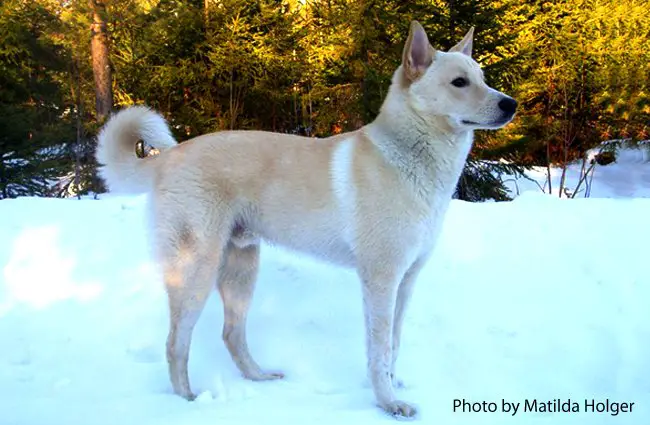

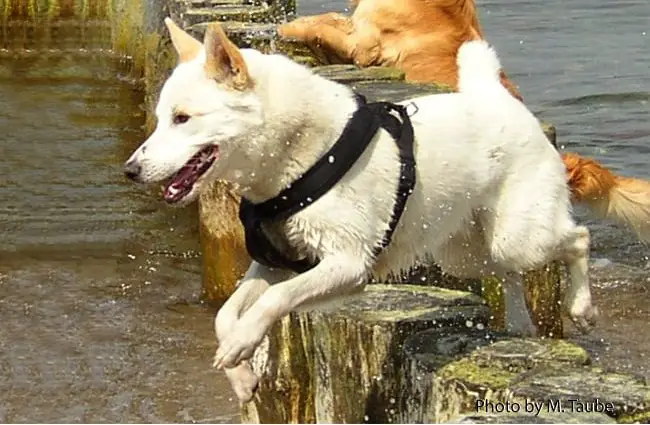
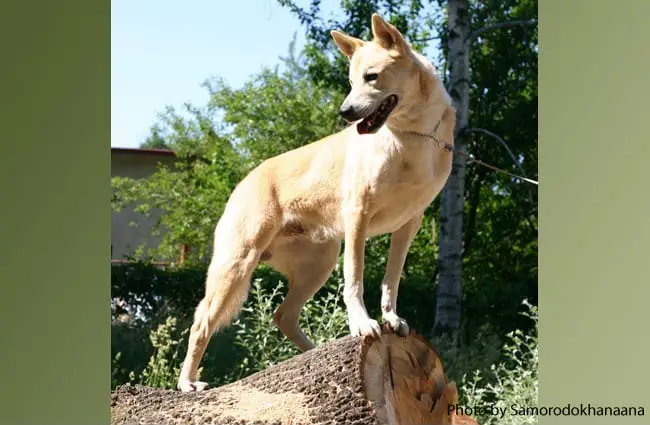
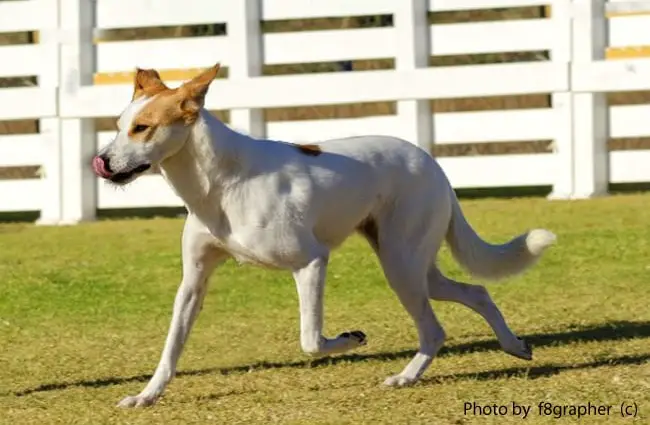
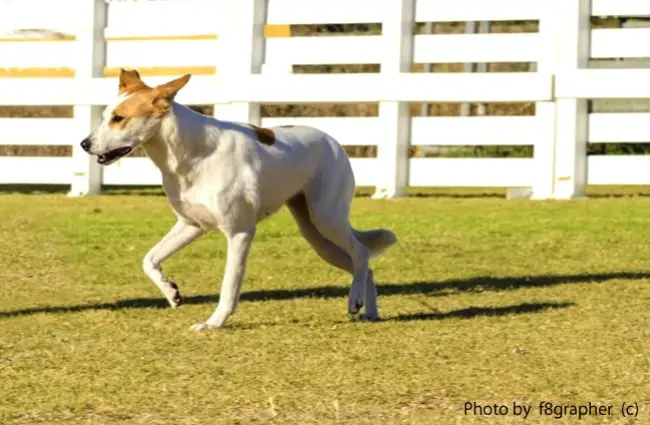

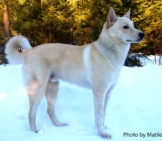

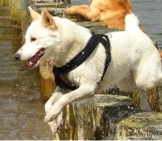
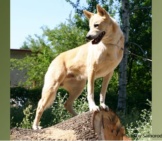
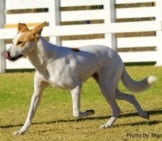
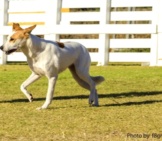

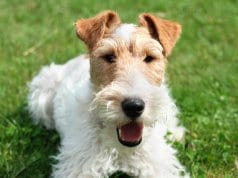
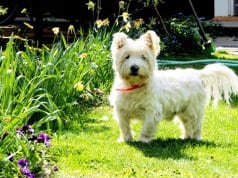


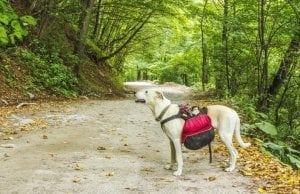


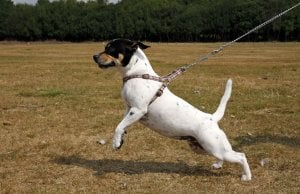
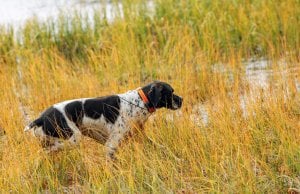


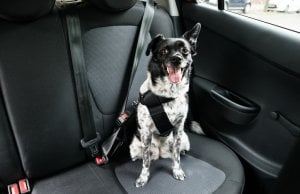

![Red Angus Closeup of a beautiful Red Angus cowPhoto by: U.S. Department of Agriculture [pubic domain]https://creativecommons.org/licenses/by/2.0/](https://animals.net/wp-content/uploads/2020/03/Red-Angus-4-100x75.jpg)

